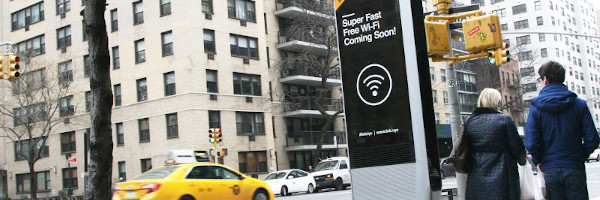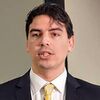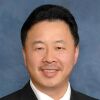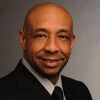Case Studies: Difference between revisions
Jump to navigation
Jump to search
No edit summary |
No edit summary |
||
| (4 intermediate revisions by the same user not shown) | |||
| Line 7: | Line 7: | ||
| document = 20170823-GCTC-PWSC-Public-WIFI-Blueprint-FINAL-v2.pdf | | document = 20170823-GCTC-PWSC-Public-WIFI-Blueprint-FINAL-v2.pdf | ||
| chapter = 9015 | | chapter = 9015 | ||
| image = NYKiosk.jpg | |||
| summary = This chapter section will feature several real-world case studies provided by the Public Wi-Fi SuperCluster Leadership team. Cities have achieved economic development, digital inclusion, emergency communications, rural connectivity, tourist attractions, and much more. | |||
}} | }} | ||
{{#ask: | {{#ask: | ||
[[City of Schenectady, NY: Enhanced City Services]] | [[City of Schenectady, NY: Enhanced City Services]] | ||
|?= | |?=# | ||
|?Has image#=2 | |?Has image#=2 | ||
|?Has description#=3 | |?Has description#=3 | ||
| Line 24: | Line 22: | ||
{{#ask: | {{#ask: | ||
[[City of San Leandro, CA: “SL Wi-Fiber”]] | [[City of San Leandro, CA: “SL Wi-Fiber”]] | ||
|?= | |?=# | ||
|?Has image#=2 | |?Has image#=2 | ||
|?Has description#=3 | |?Has description#=3 | ||
| Line 33: | Line 31: | ||
{{#ask: | {{#ask: | ||
[[Hybrid Cellular and Wi-Fi Networks]] | [[Hybrid Cellular and Wi-Fi Networks]] | ||
|?= | |?=# | ||
|?Has image#=2 | |?Has image#=2 | ||
|?Has description#=3 | |?Has description#=3 | ||
| Line 42: | Line 40: | ||
{{#ask: | {{#ask: | ||
[[Connecting Communities with Public Wi-Fi technology and local Tourism mobile applications]] | [[Connecting Communities with Public Wi-Fi technology and local Tourism mobile applications]] | ||
|?= | |?=# | ||
|?Has image#=2 | |?Has image#=2 | ||
|?Has description#=3 | |?Has description#=3 | ||
| Line 51: | Line 49: | ||
{{#ask: | {{#ask: | ||
[[LinkNYC]] | [[LinkNYC]] | ||
|?= | |?=# | ||
|?Has image#=2 | |?Has image#=2 | ||
|?Has description#=3 | |?Has description#=3 | ||
| Line 60: | Line 58: | ||
{{#ask: | {{#ask: | ||
[[Bay Area Unified Wi-Fi Roaming Security and Ease of Use]] | [[Bay Area Unified Wi-Fi Roaming Security and Ease of Use]] | ||
|?= | |?=# | ||
|?Has image#=2 | |?Has image#=2 | ||
|?Has description#=3 | |?Has description#=3 | ||
Latest revision as of 18:11, July 31, 2023
- Authors
This chapter section will feature several real-world case studies provided by the Public Wi-Fi SuperCluster Leadership team. Cities have achieved economic development, digital inclusion, emergency communications, rural connectivity, tourist attractions, and much more.

|
City of Schenectady, NY: Enhanced City Services | |
| As part of Schenectady’s Lower Union Street reconstruction Project that started in late 2015, Smart Lights have recently been installed that allow the control of lighting and other sensors to monitor devices as well as provide a small scale Public Wi-Fi deployment. This deployment, activated on June 20th 2017 as Schenectady’s contribution to World Wi-Fi Day 41 , gives residents, and visitors within a 5-block area of State Street (from Broadway to Lafayette) access to the internet and is helping to identify value for further Wi-Fi deployment. 42 Wi-Fi access points also allow the city to control smart lighting and other IoT sensors that help in evaluating the benefits of various accessories. This project is in coordination with additional Wi-Fi access in front of City Hall on Jay Street that is also available for residents and visitors to the city. | ||

|
City of San Leandro, CA: “SL Wi-Fiber” | |
| Since the creation of Lit San Leandro – a public-private partnership that yielded an 18mile, fiber optic loop – installing a free, Public Wi-Fi system in the city’s downtown core had been one of the City Council’s long-standing goals. | ||

|
Hybrid Cellular and Wi-Fi Networks | |
| What’s the value of automatic, secure Wi-Fi connectivity to a smart city? Mobile phone coverage in dense cities can suffer from blackspots and poor indoor performance. | ||

|
Connecting Communities with Public Wi-Fi technology and local Tourism mobile applications | |
| Provide areas of Public Wi-Fi for use by residents, employees and visitors while deploying informational mobile application showcasing local businesses and giving real time data for local trolley schedules.
Using technology to collect data which will improve the operation of local governments. | ||

|
LinkNYC | |
| LinkNYC is a first-of-its-kind communications network that will bring the fastest available municipal Wi-Fi to millions of New Yorkers, small businesses, and visitors. The five-borough LinkNYC network, which will be funded through advertising revenues, will be built at no cost to taxpayers and will generate more than $500 million in revenue for the City over the first 12 years. | ||

|
Bay Area Unified Wi-Fi Roaming Security and Ease of Use | |
| As more and more cities deploy public Wi-Fi service, security and ease of use are becoming critical. In addition, the service becomes fragmented and constrained by geopolitical boundaries. This action cluster will deploy and evaluate the impact of new Wi-Fi authentication and access management solutions that deliver not only the highest possible end-user security, but will allow participating municipalities to create a unified regional system that users can automatically connect to when in range, regardless of what city/county they are in. | ||






